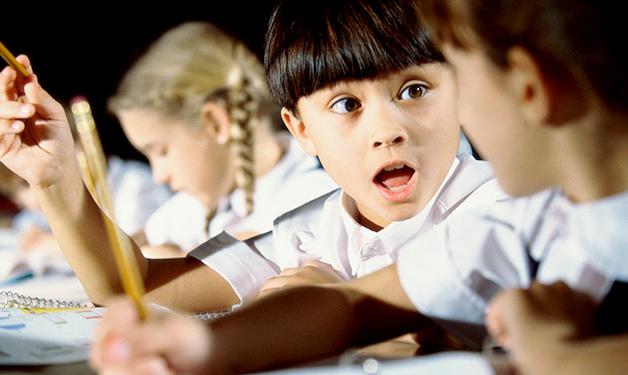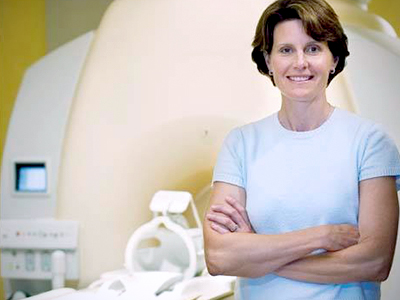
Study looks at neurological impact of unorthodox school curriculum.
Stroke researcher Dr. Lara Boyd has never worked with children before but a unique curriculum at Eaton Arrowsmith School has inspired the Vancouver Coastal Health Research Institute scientist to investigate if and how the adolescent brain changes in response to a mental physiotherapy-like regimen of daily, repeated, cognitive exercises. With this project, Dr. Boyd becomes one of the first scientists to research the concept of building up brain matter for education purposes, to improve learning response among children with learning disabilities.

“I’m not in education but I can determine whether someone’s brain has changed, and what behavioural changes correlate with those changes,” says Dr. Boyd, researcher at the Djavad Mowafaghian Centre for Brain Health and Associate Professor of Physical Therapy and Canada Research Chair in the Neurobiology of Motor Learning at the University of British Columbia. “I was intrigued by this project conceptually and think it’s worth investigating.”
The Arrowsmith Program at Eaton Arrowsmith School is based on the principal of neuroplasticity, which is the brain’s ability to change and adapt in response to behaviour, environment, neural processes, thinking, emotions, and injury. The school posits that through its curriculum, in which students execute a variety of seemingly tedious tasks and exercises over and over again, children can rewire and strengthen their brain’s ability to learn.
“In rehabilitation, we’ve been very hot on plasticity,” says Dr. Boyd.
“Can we pump up the brain, make it stronger through practice, so a person can achieve the same thing but in a different way? No one in my field would question that. But the notion of having enough brain matter to learn something is a very novel concept in education.”
Because such research is unprecedented, Dr. Boyd’s results will have major implications for the field of neuroplasticity. Using magnetic resonance imaging (MRI), Dr. Boyd will specifically look for changes to the brain’s cortices (the outermost layer of the brain), myelin surroundings of students’ neurons, and the brain’s oxygen use during certain tasks.


